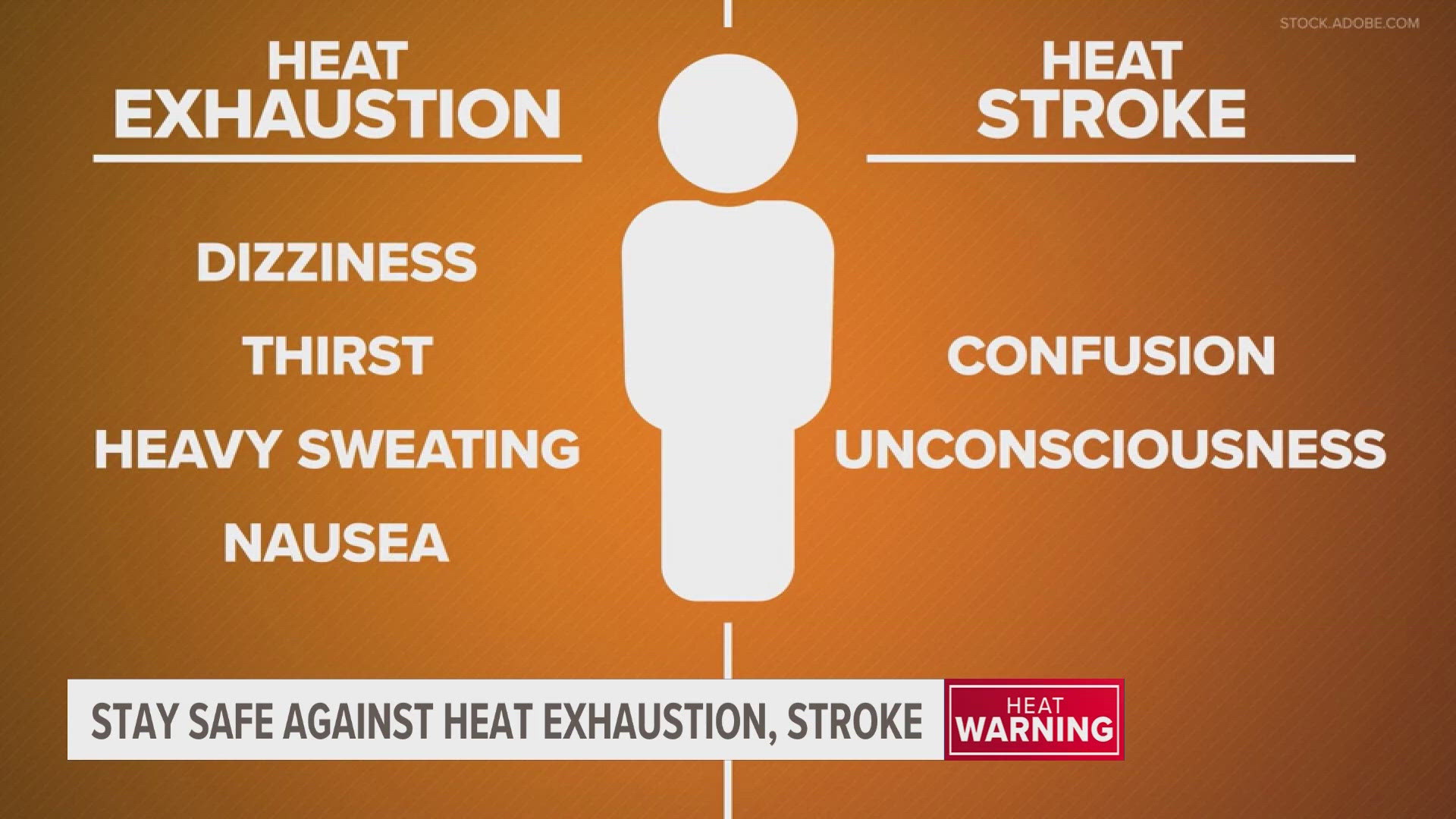GRAND RAPIDS, Mich. — Heat indices are forecasted to be upwards of 105° Tuesday. You can also expect high temperatures for the few days following.
When it becomes this hot outside, it's vital to protect yourself from heat exhaustion and heat stroke.
"We would recommend not being outside on a day like this," said Dr. Arashdeep Litt with Corewell Health.
However, many people work outdoors or are unable to be indoors with air conditioning. Certain precautions should be taken to avoid heat exhaustion and heat stroke.
Litt encourages staying in the shade, wearing cool, light-colored clothing, staying hydrated and not overly exerting.
"As physicians, we say, it's good for you to exercise, stay active," said Litt. "On such a day, we would say, do the bare minimum. So, that way, you're not exerting. Because the moment you exert, you get your core body temperature higher, and it's going to get higher because of the weather as well."
Heat exhaustion can set in in less than an hour. Those with other conditions, such as COPD, asthma and diabetes, are more at risk.
Signs of heat exhaustion include dizziness, thirst, heavy sweating and nausea. Heat stroke includes those symptoms, but also confusion or unconsciousness. Call 911 if you are experiencing any of these while outdoors.
Litt urges checking on senior neighbors who may not have air conditioning, and limiting time outdoors for you children. They may not be able to vocalize if they are getting too hot.
According to the Centers for Disease Control and Prevention, heat exhaustion and heat stroke happen when your body cannot properly cool itself.
Some tips to stay cool, according to the CDC:
- Try to limit outdoor activity to cooler times, like morning and evening hours.
- Rest often in shady areas
- Cut down on exercise during the heat.
- Know when to stop activity.
- Wear sunscreen, sunburn affects the body's ability to cool down.
- Stay hydrated, drink fluids even if not feeling thirsty.
- Watch for signs of heat exhaustion: heavy sweating, cold and clammy skin, fast pulse, nausea, tiredness, dizziness.
- Watch for signs of heat stroke and call 911 if experiencing: body temperature above 103 degrees, hot and red skin, fast pulse, headache, dizziness, nausea, confusion and passing out.

